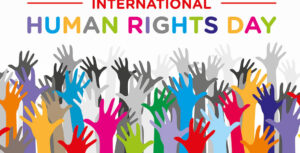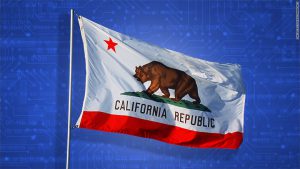FPF and LGBT Tech Host Discussion in Honor of Human Rights Day
Yesterday, in honor of International Human Rights Day, a time when individuals and organizations around the world celebrate the 1948 ratification of the Universal Declaration of Human Rights, FPF and LGBT Tech hosted a discussion exploring the “LGBTQ+ Right to Privacy.”
The conversation featured tech privacy and policy experts from both FPF and LGBT Tech, including: Christopher Wood, Executive Director, LGBT Tech; Christopher Wolf, Founder and Board Chair, FPF; Carlos Gutierrez, Deputy Director & General Counsel, LGBT Tech; Dr. Sara Jordan, Artificial Intelligence and Ethics Policy Counsel, FPF; and Katelyn Ringrose, Christopher Wolf Diversity Law Fellow, FPF. The conversation was moderated by Jules Polonetsky, FPF CEO.
The conversation revolved around issues related to the United Nations 2020 theme — which is “Stand Up for Human Rights” — and the speakers tackled entrenched and systematic inequalities experienced by the LGBTQ+ community from a privacy and equity perspective.
Throughout the discussion, speakers noted the many beneficial uses of data pertaining to an individual’s sexual orientation, gender identity and sex life; while also discussing the many ways that such data can be used to perpetuate systems that discriminate against, oppress, or otherwise harm members of the LGBTQ+ community.
For example, while the collection of health data is important in the context of COVID-19 contact tracing, the LGBTQ+ community has not always benefited from inclusive data protection practices and may be less willing to have their data collected and used in the name of public health. According to Carlos Gutierrez, Deputy Director & General Counsel of LGBT Tech, “historically, HIV laws were weaponized against the LGBTQ community, and gay men. Getting an HIV positive test result could mean the loss of employment, dropped insurance, and more.”
And while certain uses of data may pose risk for the LGBTQ community, speakers also pointed out that that inclusive data collection for marginalized communities tends to benefit society as a whole. For example, Dr. Sara Jordan, Artificial Intelligence and Ethics Policy Counsel for FPF, noted that existing definitions for sexual orientation and gender identity data (SOGI data) often do not address issues pertaining to the intersex community, and how identifying such gaps and leveraging data for good can allow the research community to “advance research, or identify ways to redirect existing research streams.” This, Dr. Jordan noted, will allow the benefits of using this data to “flow directly” back to individuals and communities in need of such advances.
Watch the full discussion here on LGBTQ+ data privacy here:
https://www.youtube-nocookie.com/embed/2-GaUxv9Q8c?feature=oembed&width=500&height=750&discover=1
Regarding FPF or LGBT Tech’s joint efforts related to LGBTQ+ privacy; contact either Katelyn Ringrose at [email protected] or Chris Wood at [email protected] with any questions, comments, or to get involved.



